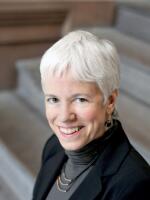A New York State health department board on Thursday formalized what Governor Kathy Hochul announced on Wednesday, school children will continue to be required to wear masks to help protect them against COVID-19 until at least early March. About two dozen people testified about the extension, including school superintendents.
The Public Health and Health Planning Council voted for another extension of the mask mandate for school children in New York.
The normally obscure policymaking board drew more than two dozen speakers to its meeting, who testified against the extension of the mandate, as well as other regulations about vaccinations and quarantine protocols.
Allie Halpin, a mother from Suffolk County, says the masks amount to “child abuse,” and are harming the mental health of children and effects their learning of communication skills.
“These kids are miserable in masks, they cannot breathe, their development is being hindered,” Halpin said. “If you vote ‘yes’ and extend the emergency order and keep our kids in masks, you can go to bed at night considering yourselves child abusers.”
The New York State Council of School Superintendents also expressed concerns. While it does not oppose continuation of the mandate, the group’s Greg Berck, who is Assistant Director and Assistant Counsel, asked for more clarity about when the mask mandate will end, and if it will be reinstated in the future. The superintendents want more information on the science and data behind the decisions, saying many school communities lack a clear understanding of the decisions.
“Communities are strained, their threads are being pulled,” said Berck, who says school leaders are struggling to “keep schools functioning.”
Berck also asked that school boards no longer be required to vote on mask mandates, to avoid further controversy at the gatherings.
Some members of the public health council board also asked for more details from health officials on the metrics used to make the decisions on the mandates.
“Are those (metrics) transparent and publicly understood?” asked Anne Monroe, the consumer advocate representative on the board. “I would have to say from everything we’ve heard, from the letters and the people who have spoken, that that process is not well understood.”
Harvey Lawrence, President and Chief Executive Officer of BMS Family Health and Wellness Centers, asked the health department to “take a more proactive approach” on getting the word out to the public on their rationale for the regulations.
“That type of information campaign is critically important,” Lawrence said. “Because I think absent that, it creates a void.”
Health Commissioner Dr. Mary Bassett, who spoke later at the full board meeting, says a number of data points go into decision making about the pandemic restrictions and regulations. They include the number of new cases, the number of people hospitalized with the virus, including pediatric hospitalizations, and the percentage of hospital beds that are occupied. Bassett says all of those numbers are going down, but she could not say what exact metrics would trigger an end to the school mask mandate.
“We use all of these together, there’s no one rule, and there probably will never be a one rule that we use for determining where we stand with the pandemic,” said Bassett. “But we are in a very good place.”
Governor Hochul, who announced the end of the statewide mask mandate for businesses on Wednesday, said she wants to be more cautious when it comes to making decisions concerning the health of children.
“Children still need adults to look out for their health,” Hochul said on February 9th. “This is all about looking out for the health of our children.”
The governor and the public health board are not alone in their decision to keep the school mask mandate in place a little longer. The federal CDC also believes it’s too soon to lift them.



